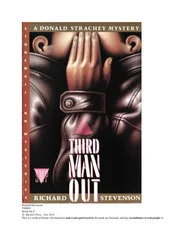in 9 volumes., 1875;
by Barry Cornwall (with Memoir), 1838;
by B. Nicholson (Mermaid Series), with Introduction by
C. H. Herford, 1893, etc.;
Nine Plays, 1904;
ed. H. C. Hart (Standard Library), 1906, etc;
Plays and Poems, with Introduction by H. Morley (Universal
Library), 1885;
Plays (7) and Poems (Newnes), 1905;
Poems, with Memoir by H. Bennett (Carlton Classics), 1907;
Masques and Entertainments, ed. by H. Morley, 1890.
SELECTIONS:
J. A. Symonds, with Biographical and Critical Essay,
(Canterbury Poets), 1886;
Grosart, Brave Translunary Things, 1895;
Arber, Jonson Anthology, 1901;
Underwoods, Cambridge University Press, 1905;
Lyrics (Jonson, Beaumont and Fletcher), the Chap Books,
No. 4, 1906;
Songs (from Plays, Masques, etc.), with earliest known
setting, Eragny Press, 1906.
LIFE:
See Memoirs affixed to Works;
J. A. Symonds (English Worthies), 1886;
Notes of Ben Jonson Conversations with Drummond of Hawthornden;
Shakespeare Society, 1842;
ed. with Introduction and Notes by P. Sidney, 1906;
Swinburne, A Study of Ben Jonson, 1889.
EVERY MAN OUT OF HIS HUMOUR
TO THE NOBLEST NURSERIES OF HUMANITY AND LIBERTY IN THE KINGDOM THE INNS OF COURT
I UNDERSTAND you, Gentlemen, not your houses: and a worthy succession of you, to all time, as being born the judges of these studies. When I wrote this poem, I had friendship with divers in your societies; who, as they were great names in learning, so they were no less examples of living. Of them, and then, that I say no more, it was not despised. Now that the printer, by a doubled charge, thinks it worthy a longer life than commonly the air of such things doth promise, I am careful to put it a servant to their pleasures, who are the inheritors of the first favour born it. Yet, I command it lie not in the way of your more noble and useful studies to the public: for so I shall suffer for it. But when the gown and cap is off, and the lord of liberty reigns, then, to take it in your hands, perhaps may make some bencher, tincted with humanity, read and not repent him.
By your true honourer,
BEN JONSON. DRAMATIS PERSONAE
ASPER, the Presenter.
MACILENTE.
PUNTARVOLO, — his Lady. — Waiting Gent. — Huntsman. —
Servingmen. — Dog and Cat.
CARLO BUFFONE.
FASTIDIOUS BRISK, — Cinedo, his Page.
DELIRO, FALLACE, — Fido, their Servant. — Musicians.
SAVIOLINA.
SORDIDO. — His Hind.
FUNGOSO. — Tailor, Haberdasher, Shoemaker
SOGLIARDO.
SHIFT. — Rustics.
NOTARY.
CLOVE, ORANGE. — A Groom. — Drawers. — Constable, and Officers.
GREX. — CORDATUS — MITIS.
THE CHARACTERS OF THE PERSONS
ASPER, he is of an ingenious and free spirit, eager and constant in reproof, without fear controlling the world's abuses. One whom no servile hope of gain, or frosty apprehension of danger, can make to be a parasite, either to time, place, or opinion.
MACILENTE, a man well parted, a sufficient scholar, and travail'd; who, wanting that place in the world's account which he thinks his merit capable of, falls into such an envious apoplexy, with which his judgment is so dazzled and distasted, that he grows violently impatient of any opposite happiness in another.
PUNTARVOLO, a vain-glorious knight, over-englishing his travels, and wholly consecrated to singularity; the very Jacob's staff of compliment; a sir that hath lived to see the revolution of time in most of his apparel. Of presence good enough, but so palpably affected to his own praise, that for want of flatterers he commends himself, to the floutage of his own family. He deals upon returns, and strange performances, resolving, in despite of public derision, to stick to his own fashion, phrase, and gesture.
CARLO BUFFONE, a public, scurrilous, and profane jester, that more swift than Circe, with absurd similes, will transform any person into deformity. A good feast-hound or banquet-beagle, that will scent you out a supper some three miles off, and swear to his patrons, damn him! he came in oars, when he was but wafted over in a sculler. A slave that hath an extraordinary gift in pleasing his palate, and will swill up more sack at a sitting than would make all the guard a posset. His religion is railing, and his discourse ribaldry.
FASTIDIOUS BRISK, a neat, spruce, affecting courtier, one that wears clothes well, and in fashion; practiseth by his glass how to salute; speaks good remnants, notwithstanding the base viol and tobacco; swears tersely and with variety; cares not what lady's favour he belies, or great man's familiarity: a good property to perfume the boot of a coach. He will borrow another man's horse to praise, and backs him as his own. Or, for a need, on foot can post himself into credit with his merchant, only with the gingle of his spur, and the jerk of his wand.
DELIRO, a good doting citizen, who, it is thought, might be of the common-council for his wealth; a fellow sincerely besotted on his own wife, and so wrapt with a conceit of her perfections, that he simply holds himself unworthy of her. And, in that hood-wink'd humour, lives more like a suitor than a husband; standing in as true dread of her displeasure, as when he first made love to her. He doth sacrifice two-pence in juniper to her every morning before she rises, and wakes her with villainous-out-of-tune music, which she out of her contempt (though not out of her judgment) is sure to dislike.
FALLACE, Deliro's wife, and idol; a proud mincing peat, and as perverse as he is officious. She dotes as perfectly upon the courtier, as her husband doth on her, and only wants the face to be dishonest.
SAVIOLINA, a court-lady, whose weightiest praise is a light wit, admired by herself, and one more, her servant Brisk.
SORDIDO, a wretched hob-nailed chuff, whose recreation is reading of almanacks; and felicity, foul weather. One that never pray'd but for a lean dearth, and ever wept in a fat harvest.
FUNGOSO, the son of Sordido, and a student; one that has revelled in his time, and follows the fashion afar off, like a spy. He makes it the whole bent of his endeavours to wring sufficient means from his wretched father, to put him in the courtiers' cut; at which he earnestly aims, but so unluckily, that he still lights short a suit.
SOGLIARDO, an essential clown, brother to Sordido, yet so enamoured of the name of a gentleman, that he will have it, though he buys it. He comes up every term to learn to take tobacco, and see new motions. He is in his kingdom when in company where he may be well laughed at.
SHIFT, a thread-bare shark; one that never was a soldier, yet lives upon lendings. His profession is skeldring and odling, his bank Paul's, and his warehouse Picthatch. Takes up single testons upon oaths, till doomsday. Falls under executions of three shillings, and enters into five-groat bonds. He way-lays the reports of services, and cons them without book, damning himself he came new from them, when all the while he was taking the diet in the bawdy-house, or lay pawned in his chamber for rent and victuals. He is of that admirable and happy memory, that he will salute one for an old acquaintance that he never saw in his life before. He usurps upon cheats, quarrels, and robberies, which he never did, only to get him a name. His chief exercises are, taking the whiff, squiring a cockatrice, and making privy searches for imparters.
CLOVE and ORANGE, an inseparable case of coxcombs, city born; the Gemini, or twins of foppery; that like a pair of wooden foils, are fit for nothing but to be practised upon. Being well flattered they'll lend money, and repent when they have done. Their glory is to invite players, and make suppers. And in company of better rank, to avoid the suspect of insufficiency, will inforce their ignorance most desperately, to set upon the understanding of any thing. Orange is the most humorous of the two, (whose small portion of juice being squeezed out,) Clove serves to stick him with commendations.
Читать дальше












